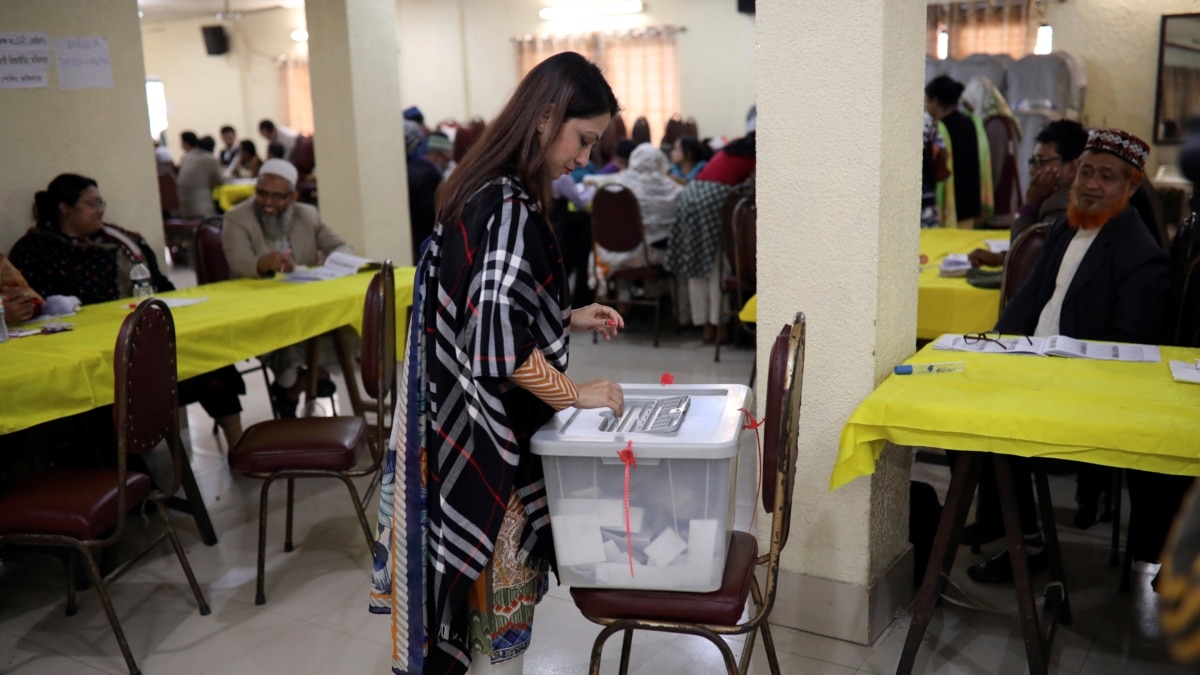Social Media Censorship: US Announces New Visa Curbs

Table of Contents
Details of the New Visa Restrictions
The US government's action against social media censorship is a significant escalation in the ongoing battle for online freedom. This section details who is affected, the types of censorship targeted, and the specific visa restrictions implemented.
Who is Affected?
The new visa restrictions target a range of individuals and entities, primarily those actively involved in suppressing free speech online. This includes:
- Government officials: Individuals within foreign governments directly responsible for implementing censorship policies and suppressing dissent. This could range from high-ranking officials to those working in lower-level censorship bureaus.
- Private actors: Companies and individuals who assist governments in censoring online content, often using sophisticated surveillance technologies. This may involve providing software, hardware, or services that enable censorship.
- Social media companies: While not explicitly named, social media platforms that actively comply with government requests for censorship, even under duress, may face increased scrutiny during visa applications for their employees. This will likely depend on the extent and nature of the compliance.
- Specific countries: The restrictions primarily target individuals and entities from countries known for widespread online censorship, though the US government hasn't released an exhaustive list publicly. This approach targets the source of the censorship rather than reacting to each instance.
Types of Censorship Targeted
The US visa restrictions aim to counter a range of censorship tactics, including:
- Suppression of political dissent: The most prevalent form, this involves silencing opposition voices, critical journalism, and peaceful protests through online censorship. This could include blocking hashtags, deleting posts, or even shutting down entire platforms.
- Blocking access to information: The US government is targeting those who restrict access to news, information, and educational resources critical of the government's policies or actions.
- Targeting of journalists and activists: Individuals working to expose human rights abuses or governmental corruption often face significant online censorship. This new policy aims to protect such individuals and organizations from such online attacks.
- Surveillance technologies: The use of advanced surveillance technologies to monitor and control online activity is another key area targeted by the restrictions. The US aims to dissuade the development and deployment of these technologies for censorship purposes.
Visa Restrictions Implemented
The US government has implemented several measures to restrict visas for those involved in significant censorship activities:
- Visa denials: Individuals directly involved in significant censorship will be denied visas to enter the United States.
- Increased scrutiny: All visa applications from individuals and entities from countries known for online censorship will undergo more rigorous scrutiny.
- Visa revocations: Existing visas held by individuals found to be actively engaging in censorship may be revoked.
Implications of the New Policy
The new US policy on social media censorship has wide-ranging implications for international relations, freedom of speech, and technology companies.
Impact on International Relations
This policy has the potential to significantly impact US relations with countries implicated in widespread online censorship:
- Strained diplomatic ties: Countries whose officials are targeted by the restrictions may respond negatively, leading to strained diplomatic relations.
- International reactions: The policy will likely draw mixed reactions from international organizations and human rights groups, some praising it as a necessary step, others raising concerns about overreach and unintended consequences.
- Countermeasures: Targeted countries may retaliate with their own countermeasures, further escalating tensions.
Freedom of Speech Concerns
The policy also raises important concerns regarding freedom of speech:
- Defining censorship: Determining what constitutes "significant" censorship remains a challenge, raising concerns about potential overreach and subjective interpretations.
- Impact on free expression: The policy could inadvertently restrict freedom of expression within the targeted countries, creating a chilling effect on online discourse.
- Unintended consequences: The broad scope of the policy raises concerns about unintended consequences, potentially hindering legitimate online activities.
Effect on Technology Companies
Technology companies operating in restrictive environments face complex ethical and legal dilemmas:
- Balancing compliance: Companies must balance compliance with local laws and regulations with upholding their commitment to free speech principles.
- Legal challenges: Navigating restrictive environments may lead to legal challenges for technology companies, potentially exposing them to lawsuits or penalties.
- Ethical considerations: Companies face significant ethical challenges in deciding how to respond to government requests for censorship.
The Broader Context of Global Social Media Censorship
Understanding the US policy requires examining the broader landscape of global social media censorship.
Examples of Censorship in Other Countries
Many countries employ various forms of social media censorship:
- China's Great Firewall: China's extensive internet censorship system blocks access to a vast range of websites and content.
- Russia's internet restrictions: Russia has implemented various laws and regulations to restrict online content and activity.
- Iran's digital restrictions: Iran’s government tightly controls internet access and actively censors online content.
- Numerous other countries: Many other countries worldwide employ varying degrees of social media censorship.
International Efforts to Address Censorship
Several international organizations and initiatives are working to address social media censorship:
- UN human rights mechanisms: The UN plays a significant role in promoting freedom of expression online.
- International NGOs: Numerous NGOs actively campaign against online censorship and promote digital rights.
- International standards: Efforts are underway to develop international norms and standards to protect freedom of expression online.
Conclusion
The US announcement of new visa curbs related to social media censorship highlights the growing global tension surrounding freedom of expression in the digital age. This policy, while aiming to combat online repression, presents complex challenges and raises important questions about international relations, human rights, and the responsibilities of tech companies. Understanding the nuances of social media censorship is crucial, and ongoing monitoring of the implications of these new restrictions is vital. Stay informed about developments in this critical area by following reputable news sources and advocating for open and free access to information. The fight against social media censorship, and for digital freedom, requires continued vigilance and action from governments, international organizations, and individuals worldwide. Let's work together to ensure a free and open internet.

Featured Posts
-
 Navigating The Chinese Market Bmw Porsche And The Future Of Automotive Sales
May 30, 2025
Navigating The Chinese Market Bmw Porsche And The Future Of Automotive Sales
May 30, 2025 -
 Top Music Lawyers 2025 Billboards Predicted Power Players
May 30, 2025
Top Music Lawyers 2025 Billboards Predicted Power Players
May 30, 2025 -
 Dealing With The Home Crowd Challenges Faced By French Open Opponents
May 30, 2025
Dealing With The Home Crowd Challenges Faced By French Open Opponents
May 30, 2025 -
 Rajinikanth Salutes Ilaiyaraajas Historic London Symphony Concert
May 30, 2025
Rajinikanth Salutes Ilaiyaraajas Historic London Symphony Concert
May 30, 2025 -
 Ticketmaster Visualiza Tu Asiento Con El Nuevo Venue Virtual
May 30, 2025
Ticketmaster Visualiza Tu Asiento Con El Nuevo Venue Virtual
May 30, 2025
